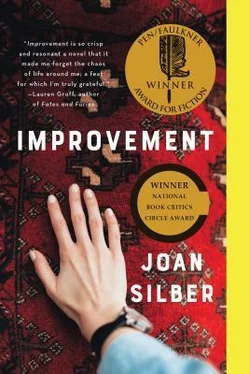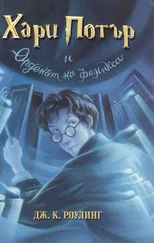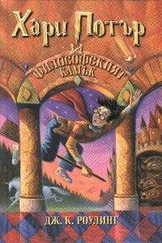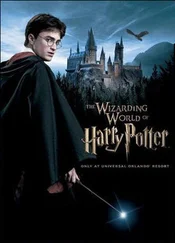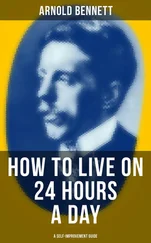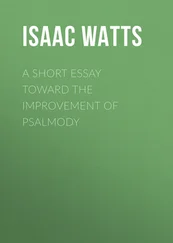She was going to take a picture of it with her phone, to send to Julian, but she’d sent him too many such photos already. His dislike of Berlin had everything to do with his being Jewish, and who could argue with that? But she wanted him to see the way the city made an effort, in this century. A giant menorah in front of the Brandenburg Gate every Hanukkah, a Holocaust Memorial as big as three football fields. She had wondered (or friends had) if her mother’s lobbying against Julian had an anti-Semitic taint, but there was no sign of that. Her mother was a leftist, noisy and open-minded and cosmopolitan, a marcher for civil rights, nothing close to skinhead about her.
The apartment was rumpled but not dirty. And too familiar—the blond wood coffee table with a cigarette burn at one edge, the blue-and-brown Turkish rug. In the bedroom, there was a bra thrown over a chair, a paperback on the floor, the unmade bed from which her mother had phoned for her own ambulance. Monika wasn’t in the habit of feeling sorry for her mother—they’d had a life together of accusing, blocking, opposing—but a wash of sorrow came over her now. Her mother had called Bruno during the wait for the ambulance, left a message he picked up hours later. Not someone she saw that much, but he was a man.
And he’d been all right, for him. Two days after Monika’s arrival he showed up again at the hospital, and her mother crowed from her bed—“Look who’s here!” It was years since Monika had seen him, but he was so battered and sunken and leathery he wasn’t really aging anymore.
“Both my girls!” he said, as he hugged each of them.
Monika used to wonder if she looked like him. Maybe the small nose? Impossible to tell now.
“You know Monika is a big success now,” her mother said. “She works at the Metropolitan Museum of Art.”
“It’s just a temporary job,” Monika said. “I think it’s ending soon.”
She tried to explain provenance research and did better in German. Bruno seemed perfectly familiar with it.
“Very good work,” he said. “They can never give back, but they have to try. And your husband is fine?”
Her mother sighed.
“Julian’s getting quite a name for himself,” Monika said. “He does these big installations, you know, site-specific work that uses natural and man-made elements in really startling ways, and he’s shown in a number of really very good places.” There were a few bits of truth embedded in this.
“You have to bring him here,” Bruno said. “I know people who would be interested, gallery people. Berlin likes that kind of thing.”
Had she learned bullshitting from Bruno? It was always tempting to believe him, and never a good idea. Since when was he a beloved crony of big movers in the art world? He did know people, from being a fixture in various drinking venues all those years, but those weren’t real bonds and they’d run out by now anyway.
“I’ll send photos of what he does,” she said, “to your phone.”
“You’re doing a business deal in my sickroom?” her mother gasped at them. “This is how you visit me? You’re in a cardiology unit!”
“Steffi, Steffi,” Bruno said. “Can I get you something nice to eat? Maybe one of those puddings from a Turkish restaurant? You like them, they’re not too heavy.”
“I raised a little capitalist,” her mother said. “She always wanted to be not so poor. Look at how she dresses now. Like she owns the world. Grab and take, that’s her.”
“Can you not do this?” Monika said. Why couldn’t she have a mother who didn’t escalate every dialogue?
“You know what’s a really good kind of pudding?” Bruno said. “There’s an almond one that’s really good.”
“They won’t have that in this neighborhood,” my mother said.
“They might. Monika can go out and check. Yes?”
Did Bruno think her mother was waiting for time alone with him? They weren’t a couple, but she might like his sole attention, being who she was. Even now she might.
Monika was just as glad to be out-of-doors, wandering the upscale byways of Mitte in search of something Turkish. And her mother was asleep by the time she got back. Bruno was gone—no need to stay with a snoring patient—but he had texted her. Meet for a drink tonight? She was having dinner with a girlfriend, but late night was not too late for Bruno.
He looked like the ghost of glory days past, in that bustling bar, with his wintry-white head easily visible. He whistled at her outfit—people still whistled?—and he ordered the kind of beer he remembered she liked three years ago.
“I hope you don’t mind, but I have to ask. What did the doctors say?”
“They seemed optimistic,” she said. “If she changes her habits, if she takes the drugs.”
Bruno shook his head. “She won’t let you see, but she was crying from being scared. She says it’s not good. Not at all.”
“She does?”
Was her mother making this up, in her way, or had Monika not gotten it right? In her head, she was going over the language the doctor had used. Myocardial infarction, ischemia, scarring.
“I’ll talk to them again,” she said.
“You have money?” he said. “She doesn’t have any money.”
The government would send nurses to visit, and she would get some small pension if she couldn’t work. That wasn’t enough?
“Not anymore,” Bruno said.
“I’m not very rich,” Monika said. She was wearing a clever black dress she had bought for work, on sale at Barneys. It threw everybody off.
“It would mean a lot to her,” Bruno said. “Whatever you can. Online it’s very easy to send money now.”
Was she being scammed? She thought suddenly of Lynnette, always on the alert for scams. Had her mother put Bruno up to this? Or was this Bruno’s idea?
“If you don’t have it, it’s okay,” he said. “I just want her to be comforted. Money comforts people.”
Monika laughed.
“So you’ll go back soon,” he said. “To New York. You live there now. I understand this. We can’t be two places at once, only gods can.”
Monika was smiling, because he said it as if he might once have made this mistake.
“Now,” he said, “so you know about the art fair in the fall here. It’s late to get a gallery to sponsor your husband, but I think it could happen.”
“He would be so happy.”
“Yes,” Bruno said. “Success makes people happy. But some of us live without it.” He had a tone between rue and enlightenment.
“You get by.”
“Oh,” he said, “I have my ways.”
Horror came over her that night, as she lay in the dark, on a couch in the living room of the mother that she had complained about all her life. She’d been too hopeful, too sure doctors could fix things, too American. Her mother had hardly ever been someone she depended on, but none of that was the point. The point was very serious.
How stupid she had been not to let Julian come with her. She missed him very much. Only a stupid person would do this alone.
But did Bruno really know what was going on? Or was he scaring her for profit, a truly hideous idea? No, that was too much even for him. If there was a conniving spirit, it was her mother. And you couldn’t blame her for wailing to Bruno, for crying in fear, for insisting the worst was coming soon. People did that. Having a mother like that made you used to what people did.
And Monika could not get a straight answer out of the doctor at the hospital. “It’s up to her,” the doctor said. “The prognosis isn’t good, but if she changes her lifestyle, she could have time. I wish we had a crystal ball to predict for you but we don’t. Of course, she should get her things in order.”
Worse than Monika had thought. The doctor spoke to her in the corridor, and when Monika went back to the room, her mother was laughing about something with her friend, Christa. It had to do with money, the time years ago she had been too broke to buy cigarettes and had scrounged for used butts in a café ashtray. The manager had thrown her out!
Читать дальше
